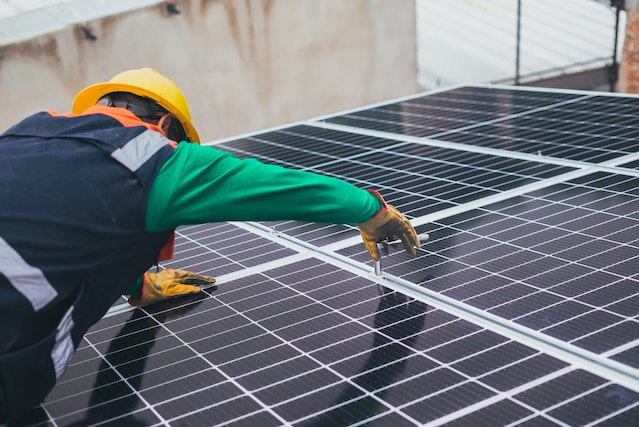Water usage has become a global issue due to droughts and shortages. Power Plants with solar panels require no water at all for production of electricity, providing an opportunity for water conservation.
However, solar power can have some adverse effects on water resources. Scientists are working hard to reduce these negative effects so as not to jeopardize our water supply.
1. Reduced Water Bills with Solar Panels
Solar panels not only produce electricity and reduce your carbon footprint, but they can also help you conserve water. Electric power plants usually need large amounts of water to cool down after producing electricity; however, solar panels produce energy without this need for cooling systems, drastically cutting back on water consumption.
Researchers have observed that solar energy production uses only 0.02 cubic meters of water per megawatt hour of electricity generated, while wind energy produces 0.001 cubic meters for every kilowatt generated.
Researchers estimate that if all American households switched to solar power, it would save 99 billion gallons of water annually – roughly four days of California’s total water usage. That translates to an annual savings of $44 million, according to the study.
Solar panel systems not only save water, but are easy to maintain and last up to two decades with minimal upkeep costs. These long-term savings make them a desirable option for those seeking a cleaner and sustainable energy source.
2. Less Wasted Water with Solar Panels
One of the primary disadvantages to traditional energy sources like coal, oil and natural gas is their high water requirement for production. Furthermore, extracting these fossil fuels causes air pollution and increases greenhouse gases in the environment.
Solar energy on the other hand does not use any water in its production of electricity, making it an environmentally friendly method that helps reduce pollution and preserve Earth’s resources.
Solar panels not only save water, but they can help you avoid expensive electricity bills. Furthermore, using renewable energy reduces your carbon footprint.
Solar panels can actually reduce landfill waste. For instance, in 2015 SolarCity’s solar energy systems saved America’s power plants more than 32 billion gallons of water through water conservation measures.
3. Increased Energy Efficiency
Solar panels convert sunlight into electricity, cutting your energy costs and helping protect the planet. Unlike conventional diesel power plants that require vast amounts of water for cooling, solar panels don’t.
Solar panel efficiency is a measure of how well they convert sunlight into electric power. The higher the efficiency, the more electricity can be generated for your home or business.
The temperature of the air surrounding a solar panel also impacts its performance. Cooler environments promote greater efficiency from panels, as electrons on the thin layer of silicon are calmer and less excited.
When temperatures rise, the amount of electricity produced by your solar system will decrease due to electrons becoming overexcited and having difficulty moving through transmission lines. That is why it is important for your installer to perform an annual inspection and health check on your panels for their efficiency.
4. Increased Home Value
Installing solar panels to your home is an economical, stylish upgrade that will increase its value. A recent study from the National Bureau of Economic Research revealed that homes with solar energy systems sell for 4% more than similar houses without them.
If you’re thinking of selling your home soon, installing solar panels could be a wise decision. In most states, your investment will be recouped completely and could even increase its resale value.
Protecting your investment requires selecting the ideal solar system for both your needs and budget. There are a few things to consider, such as product quality, durability, and long-term performance.
Before making your final choice, be sure to compare solar companies with customer reviews and certifications from reliable organizations like the Better Business Bureau. Furthermore, ensure you obtain warranty coverage for any defects or errors that might occur during installation or during the life of your panels.
